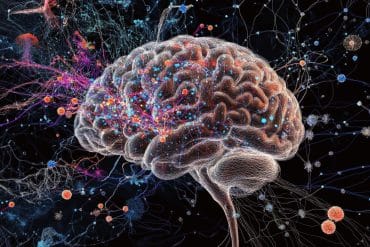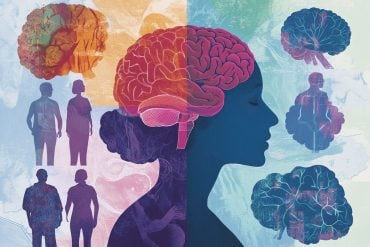Babies born to women with sensitivity to gluten appear to be at increased risk for certain psychiatric disorders later in life, according to research by scientists at Karolinska Institutet in Sweden and Johns Hopkins Children’s Center in Baltimore.
The team’s findings, published in The American Journal of Psychiatry, add to a growing body of evidence that many “adult” diseases may take root before and shortly after birth.
“Lifestyle and genes are not the only factors that shape disease risk, and factors and exposures before, during and after birth can help pre-program much of our adult health,” said investigator Robert Yolken, M.D., a neuro-virologist at Johns Hopkins Children’s Center. “Our study is an illustrative example suggesting that a dietary sensitivity before birth could be a catalyst in the development of schizophrenia or a similar condition 25 years later.”
Maternal infections and other inflammatory disorders during pregnancy have long been linked to greater risk for schizophrenia in the offspring but, the Swedish and U.S. investigators say, this is the first study that points to maternal food sensitivity as a possible culprit in the development of such disorders. The findings establish a strong link but do not mean that gluten sensitivity will invariably cause schizophrenia, the investigators caution. The research, however, does suggest an intriguing new mechanism that may drive up risk and illuminate possible prevention strategies.
“Our research not only underscores the importance of maternal nutrition during pregnancy and its lifelong effects on the offspring, but also suggests one potential cheap and easy way to reduce risk if we were to find further proof that gluten sensitivity exacerbates or drives up schizophrenia risk,” said study lead investigator Håkan Karlsson, M.D., Ph.D., a neuroscientist at Karolinska Institutet and former neuro-virology fellow at Johns Hopkins.
The team’s findings are based on an examination of 764 birth records and neonatal blood samples of Swedes born between 1975 and 1985. Some 211 of them subsequently developed non-affective psychoses, such as schizophrenia and delusional disorders.
Using stored neonatal blood samples, the investigators measured levels of IgG antibodies to milk and wheat. IgG antibodies are markers of immune system reaction triggered by the presence of certain proteins. Because a mother’s antibodies cross the placenta during pregnancy to confer immunity to the baby, a newborn’s elevated IgG levels are proof of protein sensitivity in the mother.
Children born to mothers with abnormally high levels of antibodies to the wheat protein gluten had nearly twice the risk of developing schizophrenia later in life, compared with children who had normal levels of gluten antibodies. The link persisted even after researchers accounted for other factors known to increase schizophrenia risk, including maternal age, gestational age, mode of delivery and the mother’s immigration status. The risk for psychiatric disorders was not increased among those with elevated levels of antibodies to milk protein.
The researchers say the suspicion that food sensitivity in the mother can affect her child’s risk for psychiatric disorders stems from an observation made in the wake of the World War II by U.S. Army researcher F. Curtis Dohan, M.D. Dohan noted that food scarcity in post-war Europe and wheat-poor diets led to notably fewer hospital admissions for schizophrenia. The link was merely observational, but it has piqued the curiosity of scientists ever since.
Researchers in the past also have observed that people diagnosed with schizophrenia have disproportionately high rates celiac disease, a rare autoimmune disorder characterized by gluten sensitivity. Although it is a hallmark of the condition, gluten sensitivity alone is not enough to diagnose celiac disease. Other studies have found that some people with schizophrenia have gluten sensitivity without other signs of celiac disease, the researchers note.
Yolken and Karlsson say the team already is conducting follow-up studies to clarify how gluten or sensitivity to it increases schizophrenia risk and whether it does so only in those genetically predisposed.
Notes about this Schizophrenia research article
Christina Dalman, M.D., Ph.D., of Karolinska Institutet was the principal investigator on the research.
Co-investigators included Asa Blomström, M.D., Susanne Wicks, Ph.D., of Karolinska Institutet, and Shuojia Yang, M.Sc., of Hopkins.
Funding: The research was funded by the Stanley Medical Research Institute, the Swedish Research Council and the City of Stockholm.
Contact: Ekaterina Pesheva – Johns Hopkins Medicine
Source: Johns Hopkins Children’s Center press release
Original Research: Abstract for “Maternal Antibodies to Dietary Antigens and Risk for Nonaffective Psychosis in Offspring” by Håkan Karlsson, Ph.D.; Åsa Blomström, M.D.; Susanne Wicks, Ph.D.; Shuojia Yang, M.Sc.; Robert H. Yolken, M.D. & Christina Dalman, M.D., Ph.D. in The American Journal of Psychiatry 2012 doi 10.1176/appi.ajp.2012.11081197







